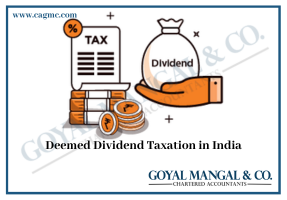
Through the WTO, India and other countries have resolved a number of trade disputes. India has also made a significant contribution to the successful creation of key trade policies. A number of nations now trade with India as a result of India’s WTO membership, boosting output, employment, living standards, and the chance to utilize global resources to their fullest potential. India has been a member of the WTO since January 1995 and has also been a member since July 1948 of the WTO’s predecessor, the General Agreement on Tariffs and Trade (GATT). As a developing country, India has played a significant role in the WTO negotiations, particularly in expressing its own interests as well as those of the developing world as a whole. This article let us understand that what are the Benefits of WTO membership for India.
| Table of Content |
Short Glimpse
Since the WTO’s founding in 1995, India has been a member. The World Trade Organization (WTO) is a multilateral organization that promotes multilateralism and a rule-based structure in the conduct of global trade among countries. India, along with more than 130 other nations, is a founding member of the WTO. Economists think that India’s involvement in an increasingly rule-based system of international trade regulation will eventually lead to greater prosperity for the country.
India emerged as the developing bloc’s most vociferous champion during the 2001 World Trade Organization summit in Doha. The summit was deemed a success as delegates from 142 nations agreed to a new round of trade discussions, which would include subjects such as the environment and competitiveness, and Investment.
What is World Trade Organization (WTO)?
The World Trade Organization (WTO) is the only global international organization dealing with the rules of trade between nations. At its core are the WTO agreements, negotiated and signed by most of the world’s trading countries and ratified in their parliaments. The aim is to help producers of goods and services, exporters, and importers in doing business.
The World Trade Organization (WTO) as an organization has perhaps never been under such threat as it is today. Increased protectionism, insufficient judges in the Appellate Tribunal for dispute resolution, an increase in the number of Regional Trade Agreements (RTAs) and Free Trade Agreements (FTAs), and other factors have led to member countries questioning the WTO’s efficacy as an institution tasked with ensuring free trade and promoting multilateralism. Aside from the current trade war-like scenario between the United States and China, there have been trading scuffles all over the world.
India (together with a few other developing nations) has raised and continues to raise complaints (through WTO Forums) on topics such as agriculture, particularly subsidies in the context of food security, and trade facilitation.
Role of World Trade Organization
The main role of the WTO is as follows:
- Administration of the WTO Trade Agreement.
- Providing a forum for business negotiations
- Resolution of commercial disputes
- Monitoring national trade policies
- Assistance in technical support and training for developing countries.
- It allows open communication between its members regarding business.
Benefits of WTO Membership for India
The World Trade Organization strives for free trade by requiring its members to make international commitments on access to goods and services markets, the use of economic policy tools impacting trade, and governmental support for agriculture. The following are the Benefits of WTO membership for India:
- Most preferred nation treatment, which means equitable access for all WTO Members’ organizations to all WTO Members’ markets;
- National treatment that prevents domestic manufacturers from having a competitive edge over importers;
- Reduced trade obstacles, notably tariffs and quantitative limits, allowing for more commerce among members;
- International trade predictability and transparency – WTO members have bound their tariffs and cannot, except for good reason, impose additional import restrictions such as bans or quotas;
- Increased competitiveness through reducing unfair trade practices between trading partners, particularly export subsidies and dumping;
- Because all Members will have international commitments towards Belarus for non-application of trade barriers, there will be an opportunity to defend trade interests at the WTO Dispute Settlement Body.
The Gains India has achieved by Joining WTO
The following are the gains that India has achieved by joining WTO:
Import and Export
Import & export of goods & services, India’s share of total world exports of goods and commercial services increased from 0.6 percent in 1995 to 0.86 percent in 2001, while its total world imports of goods and commercial services increased from 0.78 percent in 1995 over the same period to 0.99 percent.
Export of Textile Clothing
Under a WTO agreement known as the Multi-Fibre Agreement (MFA), all quotas in trade in textiles and clothing will end on January 1, 2005. Until now, the WTO agreement required member countries to phase out their existing quotas by December 31, 2004. It further prevented them from expanding the quota size every year.
Five years ago, Indian economists feared that the country’s textile sector would be overtaken by China. But recent reforms in the industry have given hope. India could see a 40 to 100 percent increase in apparel exports ($6.7 billion in 2001). The target of $50 billion in textile and apparel exports by 2010 is no longer a pipe dream.
Profit from the export of Software Services
Further, the WTO Free Trade Agreement in Services has made India a world leader in software services, which contribute greatly to foreign exchange earnings and employment generation for Indians.
Big BPO Earnings
BPO (Business Processing Outsourcing Services) from the USA and UK is coming to India, which has enabled us not only to earn foreign exchange but also to create a lot of job opportunities for educated Indian youth.
India’s Industrialized Demand for Agricultural Subsidies and the Labour Movement
In its negotiating proposal, India has demanded substantial reductions in tariffs, the elimination of trade-distorting domestic support, and export subsidies in developed countries. The movement of experts (i.e., labor) from developing countries is limited by a number of factors, such as the lack of specific sectorial commitments, the lack of mutual recognition of qualifications, the lack of transparency in the administration of visa regimes, and discriminatory practices in the use of economic needs.
The failure of the WTO Negotiations in Cancun
From September 10 to 14, 2003, trade ministers of developed and developing countries met for the next phase of negotiations on the multilateral trading system. At an earlier meeting in Doha in November 2001, ministers acknowledged the injustices of the Uruguay Round. By the end of the Cancun meeting, developing countries were expected to gain access to a fair and equitable global trading system. But these hopes did not come true, and the meeting in Cancun ended in failure.
Effects of WTO Membership on India?
Trade is an excellent weapon for any developing country, and one who uses it properly gains prosperity and wealth for his country. India, as a developing country, is doing the same. India is an agricultural country, and most of its GDP depends on agriculture as it exports agricultural products to the whole world. Trade can play a huge role in the development of any nation if it is used adequately, but it also has harmful effects. So let’s take a look at the good and bad impacts of the WTO on India.
Positive impacts of WTO Membership on India
India is a developing country with a huge geographical area and population. Therefore, it needs more capital to support its citizens. India is good at agriculture because its geographical conditions are very favorable for crops, so it is self-sufficient in feeding its people and exporting edible products, but some things are imported. So it has a perfect balance of imports and exports, and India, as one of the founding members of the WTO, has had a very positive influence on it. Below are some points that helped in the development of India through the World Trade Organization:
- The WTO has improved India’s export competitiveness.
- The lower tariff helped to integrate more effectively into the global economy.
- India’s growth and development have been pursued through the transfer and exchange of technology and ideas.
- There is a reduction in cost and time due to market access.
- The WTO has helped to better settle trade disputes in a well-defined and structured manner.
Conclusion
WTO has helped many countries develop through trade. It also helped India and is still helping to make it a developed country. Trade has a significant impact on the economy of any nation and is part of globalization. It also has negative impacts, but these are overshadowed by positive ones. Thus, for India, the WTO appears as a life-enhancing organization.







